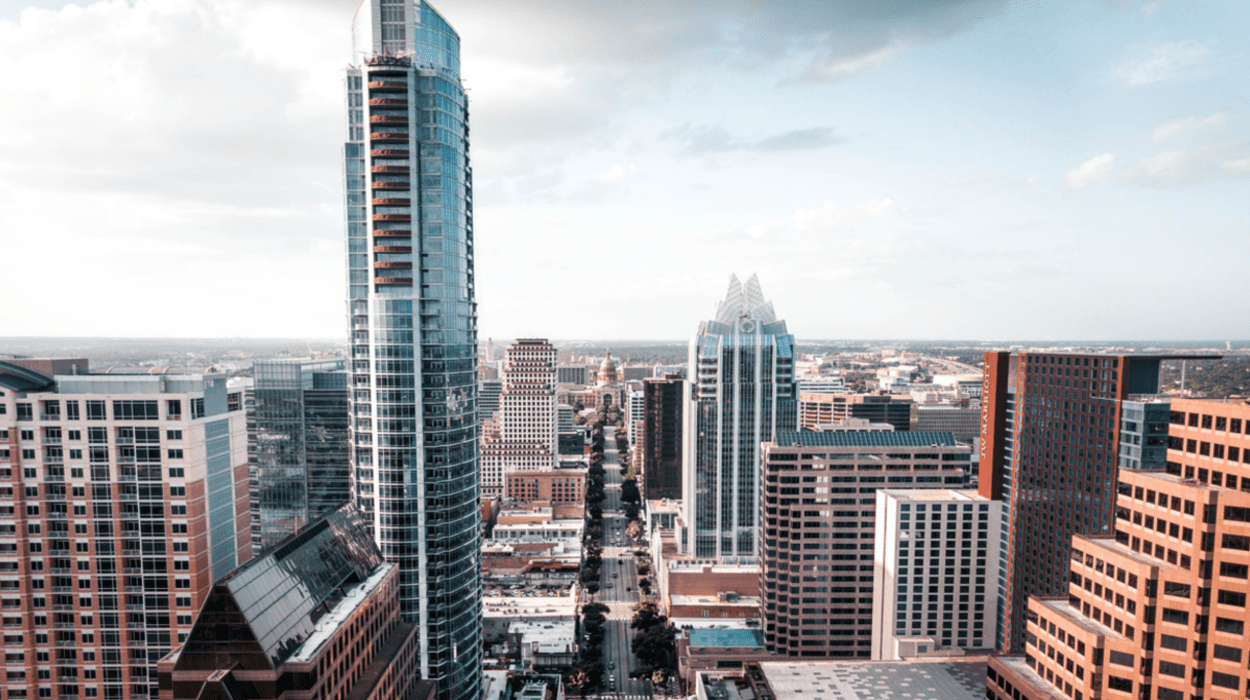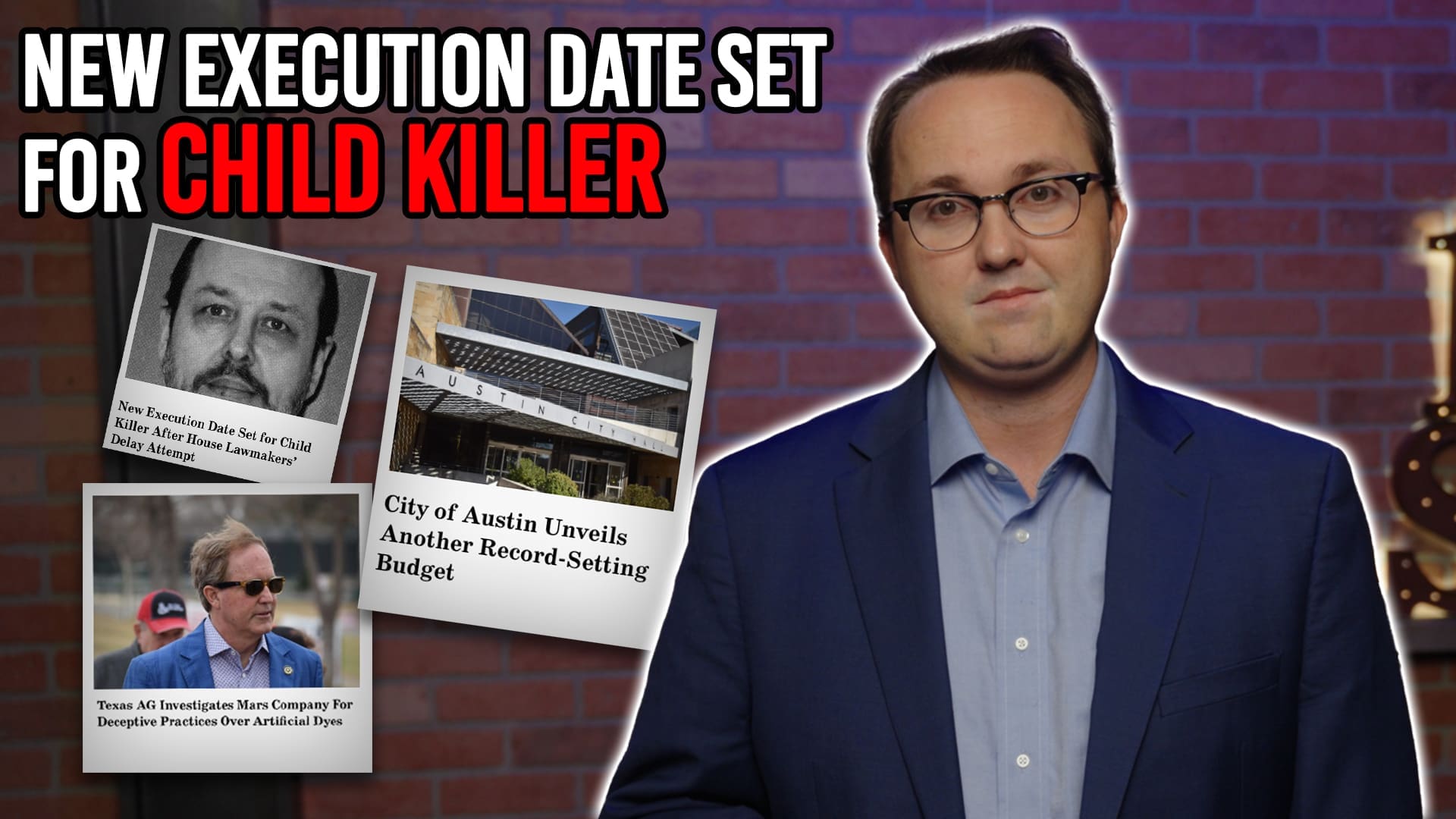If you live in Austin and your rent keeps rising—thank city hall.
It’s no secret that the cost of living has shot through the roof in Texas’ capital city. According to a recent report, Austin is now home to the most expensive average rent out of the five biggest cities in the state.
On top of that, Austin also has the second-most expensive housing market in the state, with the average home price spiking by $150,000 since 2012.
Unsurprisingly, the soaring costs have caused a disaster: many working-class citizens have been forced to move out of their homes, iconic local businesses have shut down (over 50 since 2017), and homelessness is reaching record numbers. Austin is rapidly losing its culture-defining places and people because many of them can no longer afford the runaway rents, nor the prices on anything else.
The tragic situation begs the question: why does rent keep rising? (Spoiler: the city council.)
Some blame Austin’s booming tech industry or the flood of new residents as the reasons for the escalating costs, but neither of those are true. Dallas, Houston, and San Antonio, which are all among the nation’s leaders in economic and population growth, have maintained their average home prices around or below $200,000—a startling contrast to Austin’s $363,000.
For Austinites seeking the true culprit behind their pricey problems, the answer is quite simple: Austin City Council and their “raise-the-rent” laws.
Unfortunately not a joke, the city council has for years enacted laws proven to raise rents, and now Austinites are unsurprisingly experiencing that very consequence. Here are just a few examples of their laws that are raising rents:
Strict construction restrictions
Ever heard of minimum lot sizes, height limits, or solar-ready requirements?
Though most Austinites probably don’t recognize any of their city’s endless list of construction restrictions, they’re certainly familiar with the costs these excessive rules have forced on them.
Each restriction the city council enacted has made it more difficult and expensive to build a home or apartment, meaning if a developer tries to construct housing, they must first navigate through the city’s convoluted maze of obstacles and fees.
And when the city council makes it more expensive to build an apartment, that makes it more expensive to rent it.
“Every regulation the city does just adds another layer of cost to what would be an affordable house otherwise,” said Donovan Davis, president of Austin firm Danze and Davis Architects. “What used to cost maybe $75 for us to do a site plan in Austin now costs over $2,000 because of the amount of time it takes to do all those regulations that we do.”
Another stark comparison: a recent report showed that if a developer wants to build a four-story apartment complex in Austin, the city council’s fees on that project could cost more than $1 million. The City of Dallas, however, would only charge roughly $120,000.
The city council’s pricey construction restrictions are unnecessarily raising rent.
Needless delays for permission slips
Even when a new housing project finally stumbles through the expensive maze of rules, city hall then orders a review of everything—something they’re notoriously slow at, and something that also raises rents.
A 2015 paper by University of Texas graduate student Megan Shannon detailed the specifics:
As regulatory delays have increased remarkably since 2009, strong rent growth has compensated for this growing uncertainty throughout the Austin market. If regulatory delays are eliminated and developers receive approvals for multifamily projects within the 120 day mandate instead of the 223 day average, renters could see relief of 4-5% on their rent, or an average of $60 per month or $720 annually in Central Austin [emphasis added].
To summarize, city council has made it difficult and expensive to build new housing—and shockingly, there’s a shortage of housing and it’s expensive and difficult to find places to live.
And on top of enacting laws that raise rents, the city council has also raised taxes, taking 80 percent more from the average homeowner than they did 10 years ago.
That’s kind of like taking your cake and charging you for it too.
Surprisingly, even Council Member Greg Casar, a member of the Democratic Socialists of America, recently admitted their own restrictions are suffocating new housing.
“Sometimes our own rules get in our own way,” Casar said. “We’ve seen time after time, where the City Council has gotten behind building more affordable homes, then some of our city rules can restrict the number of homes in a location by 50 percent, or up to 100 percent.”
Casar proposed repealing some of the needless raise-the-rent laws, but only for specific city-approved projects. So the problem at large will still remain.
If Austinites have finally had enough, they can contact their city council members and tell them to repeal all of the “raise-the-rent” construction laws.
Otherwise, expect city council to keep raising—well, you already know.
Council members’ contact information is listed below:
Mayor: Steve Adler
Email: steve.adler@austintexas.gov
Phone: 512-978-2100
District 1 Council Member: Natasha Harper-Madison
Email: https://www.austintexas.gov/email/district1
Phone: 512-978-2101
District 2 Council Member: Delia Garza
Email: delia.garza@austintexas.gov
Phone: 512-978-2102
District 3 Council Member: Sabino “Pio” Renteria
Email: sabino.renteria@austintexas.gov
Phone: 512-978-2103
District 4 Council Member: Greg Casar
Email: greg.casar@austintexas.gov
Phone: 512-978-2104
District 5 Council Member: Ann Kitchen
Email: ann.kitchen@austintexas.gov
Phone: 512-978-2105
District 6 Council Member: Jimmy Flannigan
Email: jimmy.flannigan@austintexas.gov
Phone: 512-978-2106
District 7 Council Member: Leslie Pool
Email: leslie.pool@austintexas.gov
Phone: 512-978-2107
District 8 Council Member: Paige Ellis
Email: paige.ellis@austintexas.gov
Phone: 512-978-2108
District 9 Council Member: Kathie Tovo
Email: Kathie.tovo@austintexas.gov
Phone: 512-978-2109
District 10 Council Member: Alison Alter
Email: district10@austintexas.gov
Phone: 512-978-2110





